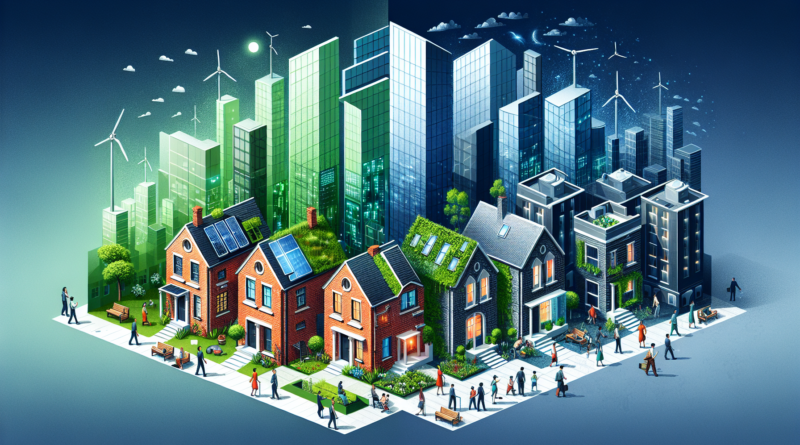Smart Homes & Eco-Friendly Construction
The real estate market is undergoing a significant transformation with the advent of smart homes. These homes are equipped with advanced technology that allows homeowners to control various aspects of their living environment remotely. From adjusting thermostats to managing security systems, smart homes offer unparalleled convenience and efficiency. The integration of Internet of Things (IoT) devices has made it possible for homeowners to monitor energy consumption, enhance security, and improve overall comfort.
Eco-Friendly Construction Trends
As environmental concerns continue to grow, the demand for eco-friendly construction practices is on the rise. Sustainable building materials, energy-efficient designs, and green certifications are becoming standard in new developments. Builders are increasingly focusing on reducing the carbon footprint of homes by incorporating solar panels, rainwater harvesting systems, and high-efficiency insulation. These practices not only benefit the environment but also result in cost savings for homeowners through reduced utility bills.
Benefits of Smart and Eco-Friendly Homes
Smart and eco-friendly homes offer numerous advantages. They provide enhanced security, increased energy efficiency, and a healthier living environment. Homeowners can enjoy reduced energy costs, improved indoor air quality, and the satisfaction of contributing to environmental conservation. Investing in such homes is not only a smart financial decision but also a step towards a sustainable future.
The integration of technology in real estate is not limited to smart homes. Virtual reality (VR) and augmented reality (AR) are revolutionizing the way properties are marketed and sold. Potential buyers can now take virtual tours of homes from the comfort of their own living rooms. This technology allows for a more immersive experience, enabling buyers to visualize themselves in the space and make informed decisions. Additionally, blockchain technology is being explored for its potential to streamline transactions and enhance security in property dealings.
Challenges and Opportunities
While the shift towards smart and eco-friendly homes presents numerous opportunities, it also comes with challenges. The initial cost of implementing advanced technologies and sustainable materials can be high. However, the long-term benefits, such as energy savings and increased property value, often outweigh these costs. Moreover, as technology continues to evolve, the price of smart home devices and eco-friendly materials is expected to decrease, making them more accessible to a broader audience.
Future Outlook
The future of the real estate market is bright, with smart homes and eco-friendly construction leading the way. As technology advances and environmental awareness grows, these trends will become increasingly prevalent. Homebuyers and investors should consider these factors when making decisions, as they are likely to play a significant role in the market’s evolution.
The real estate market is at a pivotal point, with smart homes and eco-friendly construction setting new standards for the industry. These innovations are not only reshaping the way homes are built and lived in but also offering significant benefits to homeowners and the environment. As we move forward, embracing these trends will be crucial for those looking to stay ahead in the ever-evolving real estate landscape.


